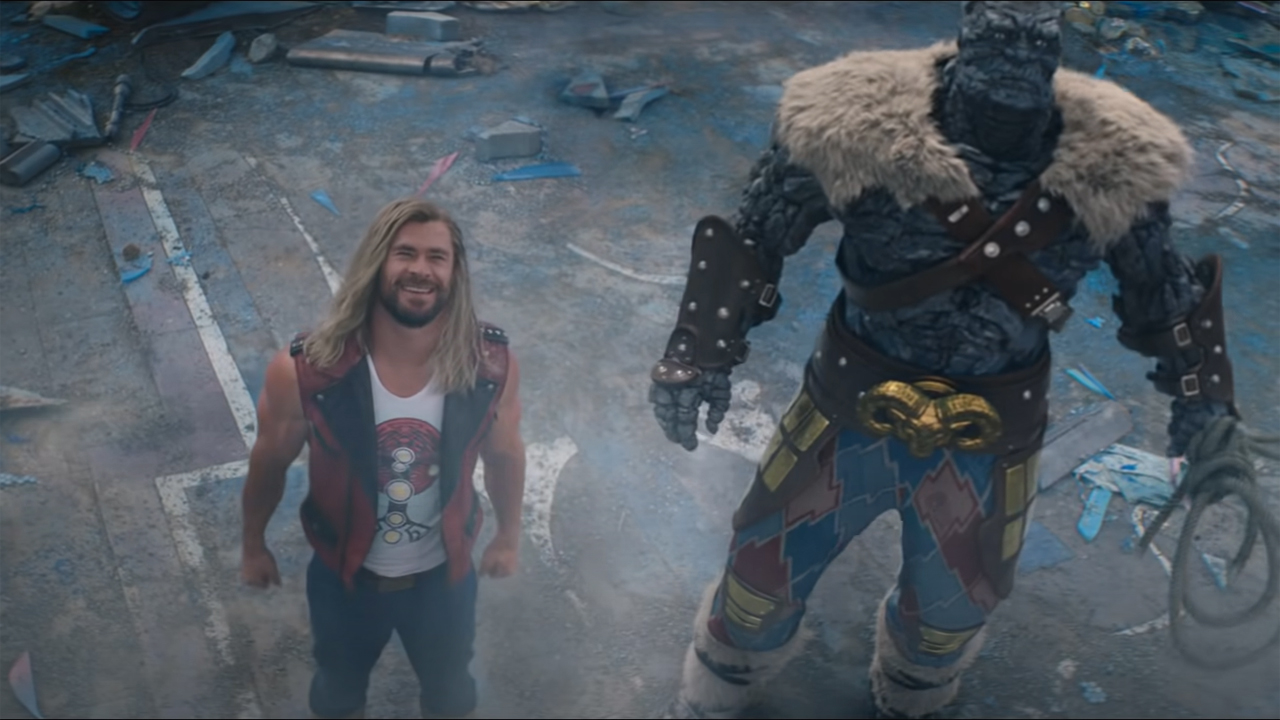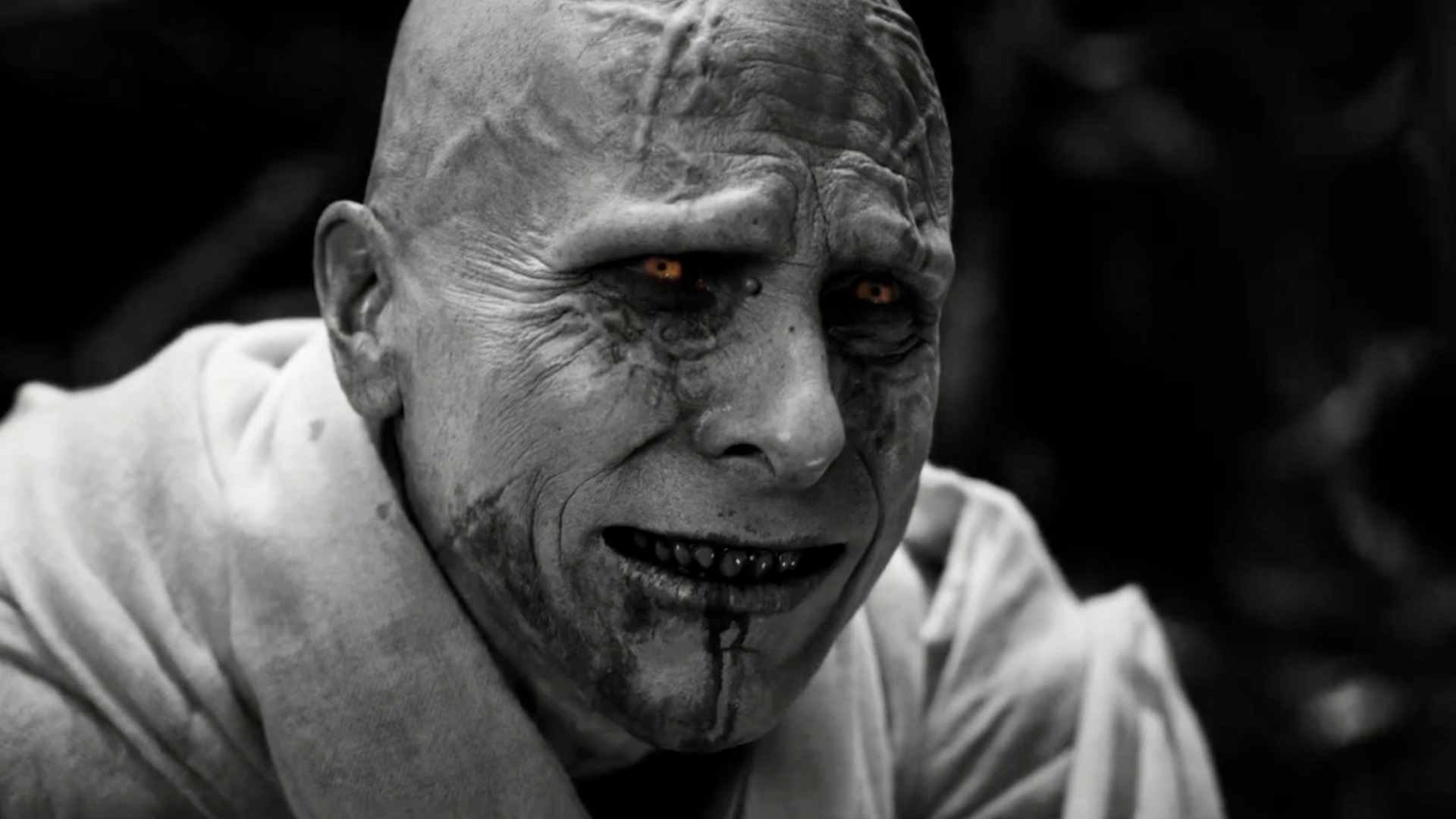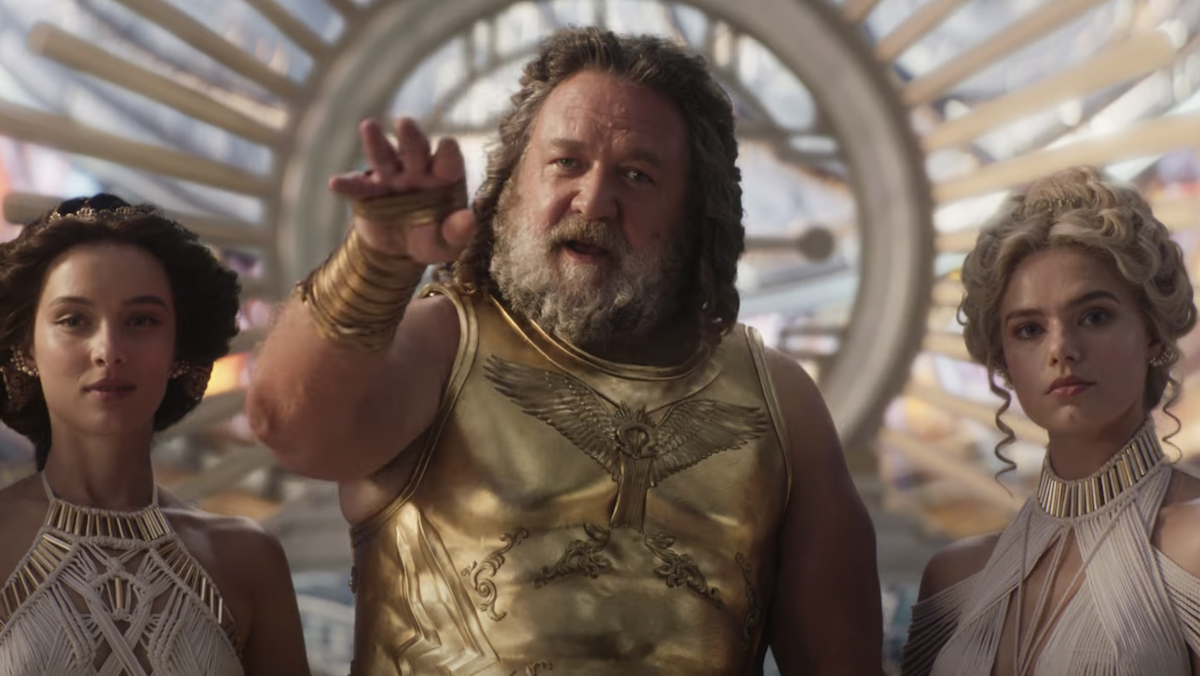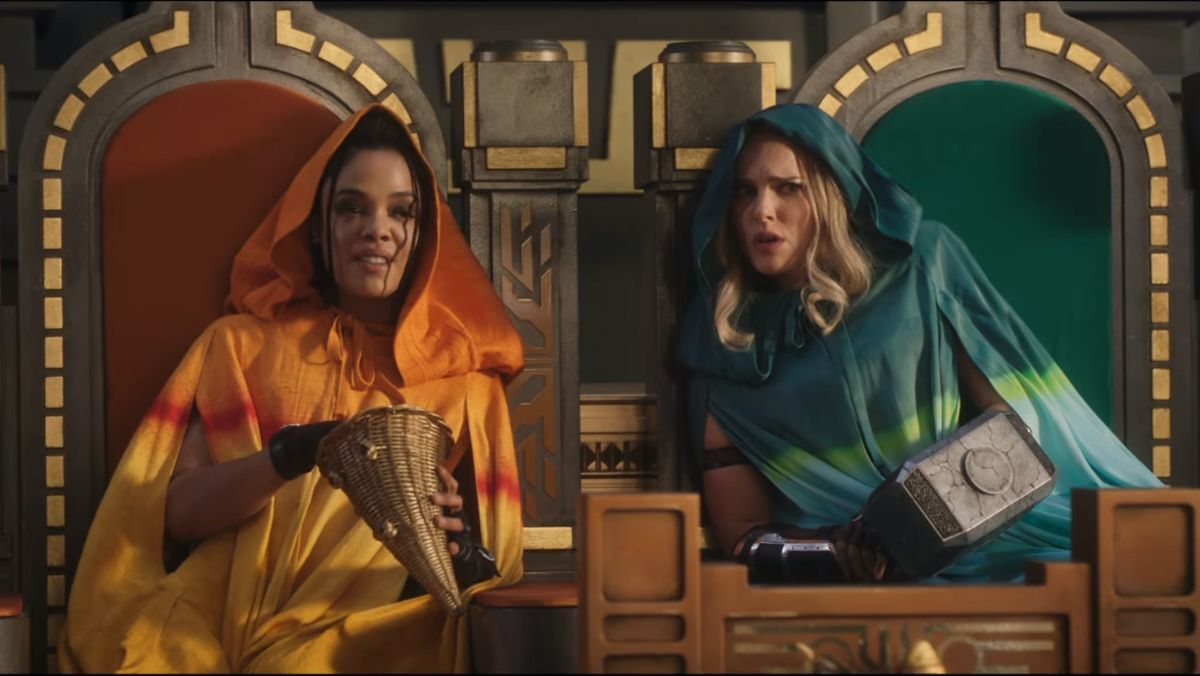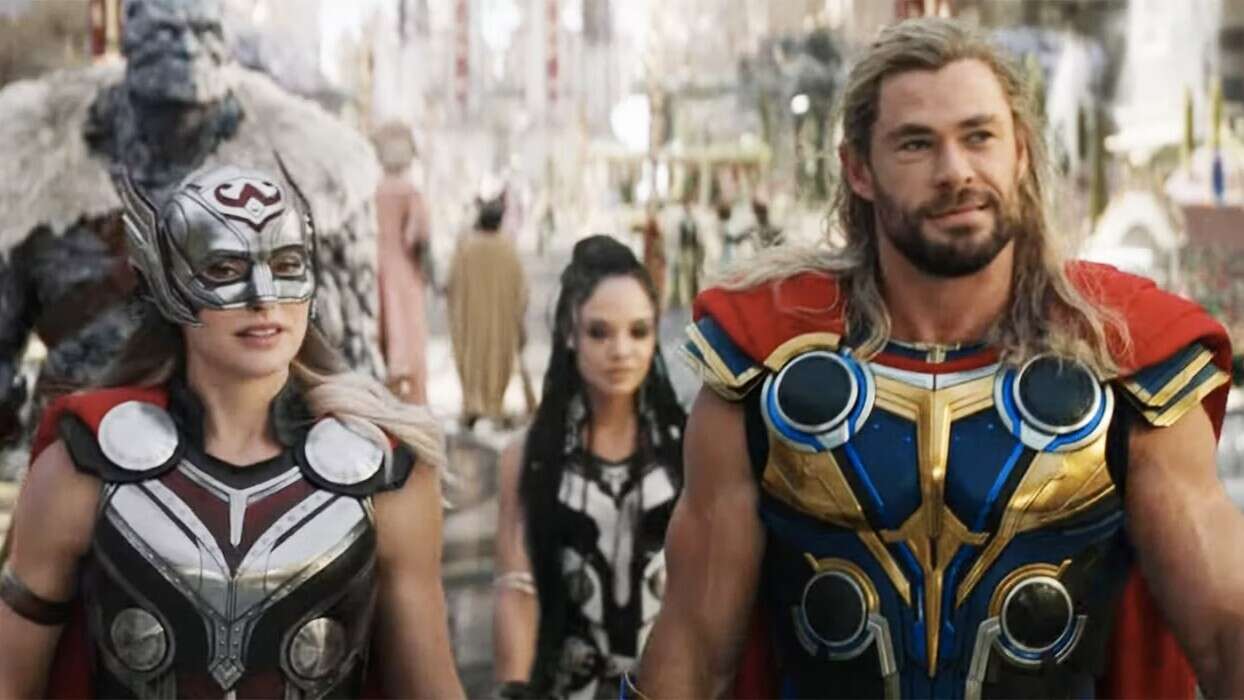As Thor: Ragnarok is now ten Marvel movies and countless TV shows old, it’s easy to forget what a watershed it was – both in the Thor series, and in the Marvel Cinematic Universe on the whole. Taika Waititi’s breath of fresh air reimagined Thor as a primarily comedic figure, to great effect given Chris Hemsworth’s talents in that regard. While injecting a much-needed Kiwi charm and eccentricity into an increasingly turgid 20-film behemoth, Waititi had it both ways by also giving us a movie where a huge amount of important things happened: Thor lost his hammer Mjolnir, his father Odin, his whole planet of Asgard, and one of his own eyes to boot. None of these took the goofy grins off our faces, and the film also did the important work of directly setting up the final two Avengers movies, the two most consequential films in the MCU.
It’s no surprise that this lightning couldn’t strike twice in Thor: Love and Thunder. Waititi is back, both as director and as the hilarious rock creature Korg, giving it a head start at such a potential repeat. The difference this time is that all involved expect to be funny just by showing up. Comedy is hard, blockbuster filmmaking is even harder, and the fourth film in the Thor series reveals just what an unlikely alchemy these collaborators produced the first time around. It’s sloppy, and only occasionally in a way that feels like an intentional part of its ethos.
You may remember we last saw Thor taking off with the Guardians of the Galaxy at the end of Avengers: Endgame. Well, forget about that. The Guardians do make a cameo appearance at the start, but instead of really exploring the juicy ways Thor’s personality might interface with theirs, Waititi jettisons them. Which is just as well, since we’ll have an entire film devoted to them in 2023, but it does feel like the first of a number of prior expectations that were established, only to peter out into missed opportunities.
This particular “Thor adventure” – that’s how he refers to them, a nod to his own status as a mythical figure – dusts off Natalie Portman’s Jane Foster for the first time since Thor: The Dark World. Broken up from Thor, she’s been happily living her own existence as a celebrated astrophysicist, though maybe not quite so happily recently – she’s in stage four of a cancer diagnosis. She’s been researching her own potential cure, but what ultimately makes the difference for her health is being “called” by the splintered Mjolnir from its glass case on display in New Asgard, the Earth-based refuge for the displaced Asgardians that has become something of a tourist trap.
It’s Thor’s own return to New Asgard to quell a threat that reacquaints him with his broken hammer’s new master. Jane appears on the battlefield in very similar regalia to his own, and lo and behold, she is now also a Thor – known as The Mighty Thor. She has command of the newly reassembled hammer, giving her many of the powers enjoyed by Thor Odinson – and creating the film’s funniest extended joke, where Thor seems drawn as much to his old weapon as to his old love interest. This creates jealousy in his new weapon, the axe Stormbreaker, which comes and hovers by him ominously any time it senses Thor is feeling too sentimental about Mjolnir. (Why Mjolnir makes Jane into “a Thor,” and not just some similar Asgardian warrior with her own distinct identity, is never expounded on. “Because that’s what happened in the comics” is probably considered a suitable explanation.)
The threat they’re trying to quell comes from Gorr (Christian Bale), who we learn in the prelude wants to destroy all gods after the god he worshipped proved to be a charlatan. (His daughter died in service of that god in some unspecified way.) Gorr has received his own powers through a mystical sword that makes him all powerful in the same unspecified way that is common to most of these movies, and he can use that sword to kill these otherwise immortal beings. Bale is licking his lips here, but there’s something earnest about his performance style that never quite meshes with the rest of the film.
It’s when this new little band – which includes Korg and returning favourite Valkyrie (Tessa Thompson) – travels to Omnipotence City to meet with other gods that the whole thing starts to really go off the rails. Here they meet Zeus, an obnoxiously jovial tyrant who loves orgies and other indulgences, and is played by Russell Crowe. He stands in the way of their attempt to raise an army of the gods to fight off this god killer, and becomes an opponent in his own right.
There are echoes everywhere of what worked well in Thor: Ragnarok. The Zeus character – who won’t bring Crowe back into our good graces – is meant to serve a similar function as Jeff Goldblum’s Grandmaster, for example. They’ve even brought back the bit where Matt Damon cameos as the actor playing Loki in one of these low-tech dramatic recreations of Asgardian legend. Other bits have been inserted that Waititi is sure will tickle our funny bone, like these oversized goats Thor gets shackled with as a gift for liberating a planet of its invaders. (A feat he only accomplishes whilst inadvertently destroying their sacred crystalline temples.) The characters have to shepherd these goats for the rest of the movie, and the thing about the goats is that they are always screaming.
Sounds good on paper, but the results are not up there on the screen. Valkyrie doesn’t work as well out of her own battle garb and without constantly being drunk, as she basically just comes across as Tessa Thompson wearing a Phantom of the Opera t-shirt. Korg feels a lot more like an irrepressible Disney sidekick than the odd creation we first met in the earlier film. Portman doesn’t seem comfortable with the banter that’s now part and parcel to the MCU experience, especially since it tends to fly in the face of her character’s terminal cancer diagnosis. And the screaming goats just never get there. Inexplicably, the film is also beholden to Guns N Roses, featuring a half-dozen of their songs on its soundtrack, and one character – the son of the fallen warrior Heimdall – who changes his name to Axl.
To be fair, Thor: Ragnarok felt like a similar instance of throwing spaghetti against the wall to see what sticks. As is the case with all airborne spaghetti, it will stick for some people more than for others. Both films are building off the role Thor has always held in the MCU, since this was the first series to free itself from the comparative realism of the earthbound comics previously adapted for the screen. If Norse gods who live in outer space were not a bridge too far – or maybe a bifrost too far – why then should Russell Crowe dancing around in a Zeus outfit be any different? It’s a “know it when you see it” sort of thing, and far too often in Love and Thunder, it’s also a “dislike it when you see it” sort of thing.
Thor: Love and Thunder is currently playing in cinemas.
